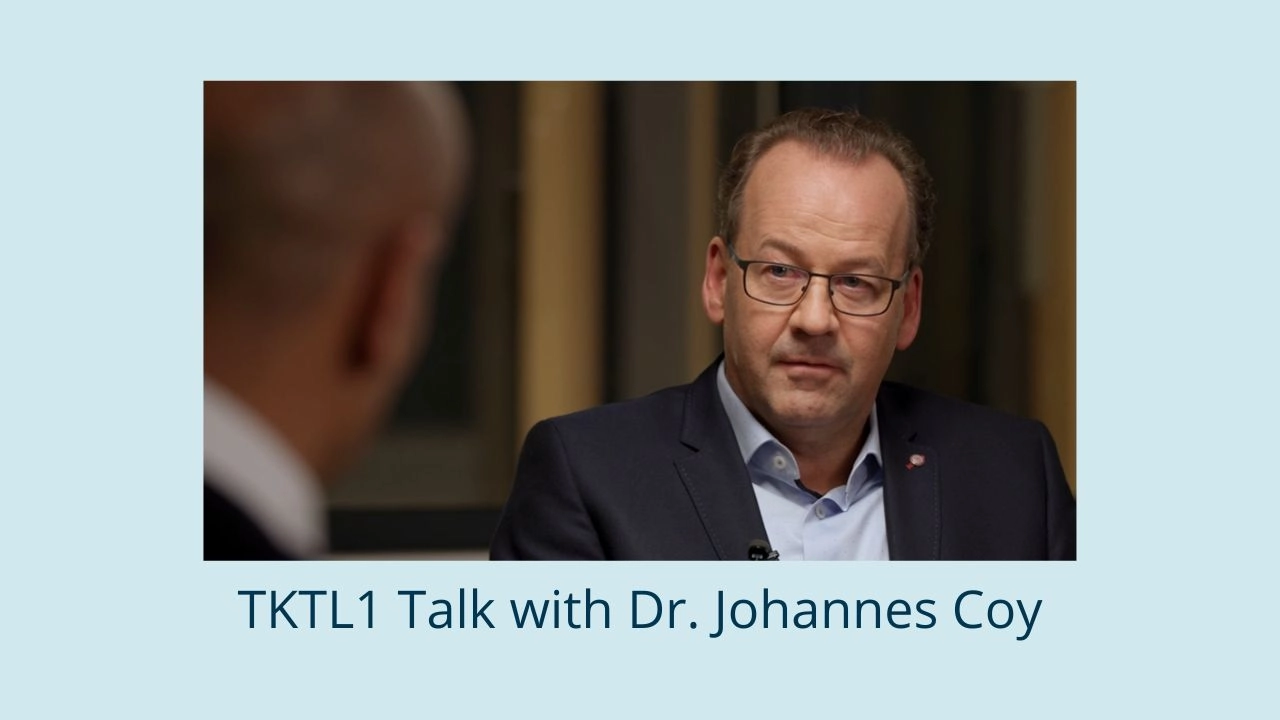“With TKTL1, we will rethink medicine.”
In the talk format with moderator and Origem Medical CEO Haroon Ahmad, Dr. Johannes Coy, the discoverer of the TKTL1 gene, talks in detail about the opportunities and future expectations that the latest scientific findings on TKTL1 potentially implicate. Coy dares to look ahead on what impact and changes these findings may have on medicine in general, but also in particular for early cancer detection and cancer therapy.
Coy emphasizes that the new knowledge about the sugar metabolism controlled by TKTL1 not only allows cancer to be detected earlier, but also makes cancer therapies more effective. Accordingly, the chances of cure and survival rates of cancer patients should increase significantly in the future.
TKTL1 acts as a protective shield for the cancer against which the immune cells bounce off, says Coy. If TKTL1 can be inhibited, the patient’s own immune system has a great chance of eliminating much of the tumor at an early stage. Inhibiting TKTL1 eliminates the main protective factor against cancer. This finding opens up completely new perspectives for immunotherapy.
Current knowledge of the TKTL1 pathway also offers new opportunities for more effective nutritional strategies in cancer, according to Coy.
In the interview, Coy pleads for a “reset in terms of human metabolic pathways” in light of prevailing textbook opinions and now available latest findings: “With TKTL1, we will rethink medicine.”
“With TKTL1, we will rethink medicine.”
In the talk format with moderator and Origem Medical CEO Haroon Ahmad, Dr. Johannes Coy, the discoverer of the TKTL1 gene, talks in detail about the opportunities and future expectations that the latest scientific findings on TKTL1 potentially implicate. Coy dares to look ahead on what impact and changes these findings may have on medicine in general, but also in particular for early cancer detection and cancer therapy.
Coy emphasizes that the new knowledge about the sugar metabolism controlled by TKTL1 not only allows cancer to be detected earlier, but also makes cancer therapies more effective. Accordingly, the chances of cure and survival rates of cancer patients should increase significantly in the future.
TKTL1 acts as a protective shield for the cancer against which the immune cells bounce off, says Coy. If TKTL1 can be inhibited, the patient’s own immune system has a great chance of eliminating much of the tumor at an early stage. Inhibiting TKTL1 eliminates the main protective factor against cancer. This finding opens up completely new perspectives for immunotherapy.
Current knowledge of the TKTL1 pathway also offers new opportunities for more effective nutritional strategies in cancer, according to Coy.
In the interview, Coy pleads for a “reset in terms of human metabolic pathways” in light of prevailing textbook opinions and now available latest findings: “With TKTL1, we will rethink medicine.”
